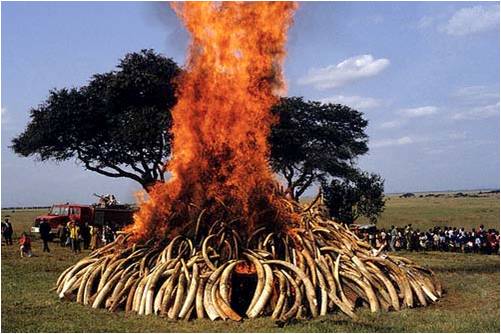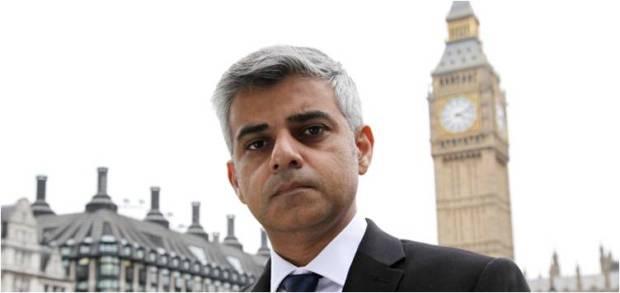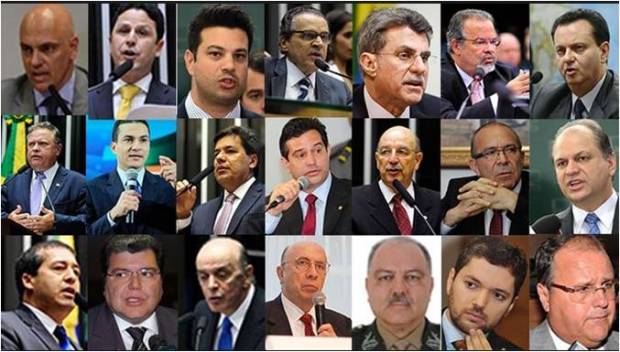The shame of the ivory trade
On April 30, the Kenyan government burned 100 tons of ivory in a gesture against the continued clandestine trade of this luxury item. In the last three years, according to World Wildlife Fund, 100,000 elephants have died in Africa, feeding a malicious trade of ivory, mostly emanating from Asia, and China in particular. If this rate of killing continues, the future of one of the last remnants of the mega fauna that once roamed this land is greatly imperiled. All for an item to satisfy man’s greed, this time an aesthetic one where the creation of beautiful art causes the demise of a living species, and such an elegant one as the elephant.

Wholesale slaughter of other fauna, some of it endangered, also persists where no necessity is present. Animals such as minks and foxes are gratuitously killed to satisfy the vanity of people who think a fur coat validates their station in life. Countries such as Japan, Russia, Iceland and Norway continue to hunt whales for their meat, considered a delicacy in local culinary tradition but one which leads to the slaughter of the king of the seas.

It is time consumers reacted by boycotting items related to these practices. This has worked before, in the case where dragnet fishing for tuna resulted in the killing of thousands of dolphins entangled in the nets. Consumers stopped buying tuna fish that came from dragnet fishing and the pressure on the tuna industry caused them to alter their methods of acquiring their good.
Muslim mayor in London

Lately, there seems to have been a maelstrom of bad news about Muslims in Europe. This is particularly due to the terror attacks in Paris and Brussels, and the rise of intolerant and extreme right wing groups that can attract up to 20% of support in some European countries. For the last sixty years, Europe has seen itself as a bastion of tolerance and the center of a new form of multicultural societies, expunging the ghosts of fascism and racism which marked much of its history. However, atavistic tendencies seem to be re-emerging, spawning the kind of exclusionary, ‘nativist’ policies that have immigrants and their offspring, many of whom have been in Europe for decades, feeling vulnerable and scared.

But the recent mayoral election in London, where Sadiq Khan, the son of Pakistani immigrants, was elected mayor of one of the most important cities in the world, is a piece of good news against all the recent negativity. His campaign emphasized tolerance and common human values, and despite being defamed by some opponents as being a radical Islamists, the people of London saw through these base claims and elected him anyway.
#Temersowhite
This year’s Academy Awards provoked controversy for the failure for any person of color being nominated for the principal acting categories. Much soul searching was conducted aiming to discover why it was that black actors were so often overlooked and the reasons for such a dearth of female or African American directors. The conclusion was that the almost entirely white male composition of the Academy board had led to this lamentable situation.

Brazil’s recent political turmoil culminated in the temporary removal of President Dilma Rousseff from office on May 12. Her replacement, Michel Temer, assures the country that the legacy of the PT, of bringing sectors of the Brazilian population into the economy and political world from where they had been historically excluded, would be maintained. Such words rung slightly hollow when he announced his cabinet, made of exclusively of white males. Not a single woman or person of color.

African American film director Spike Lee says that when he comes to Brazil and watches television, he forgets that he is not in Scandinavia, so miniscule is black representation in the media here. Viewers outside Brazil, who have been exposed to a lot of coverage concerned with the impeachment process, might be forgiven from not realizing that half the Brazilian population is black. The same occurred during the World Cup, projected worldwide, where it was difficult to spot a single black spectator in the Brazilian stadiums.
Some Brazilians insist that what occurs here is classism rather than racism, that darker people are discriminated against because they are assumed to be poor. People say this with a straight face. To this author, it’s an absurd argument. It’s time for Brazil to face up to its race problem, which is unfortunately deeply embedded in the culture. Temer’s ministerial choices merely affirm this.